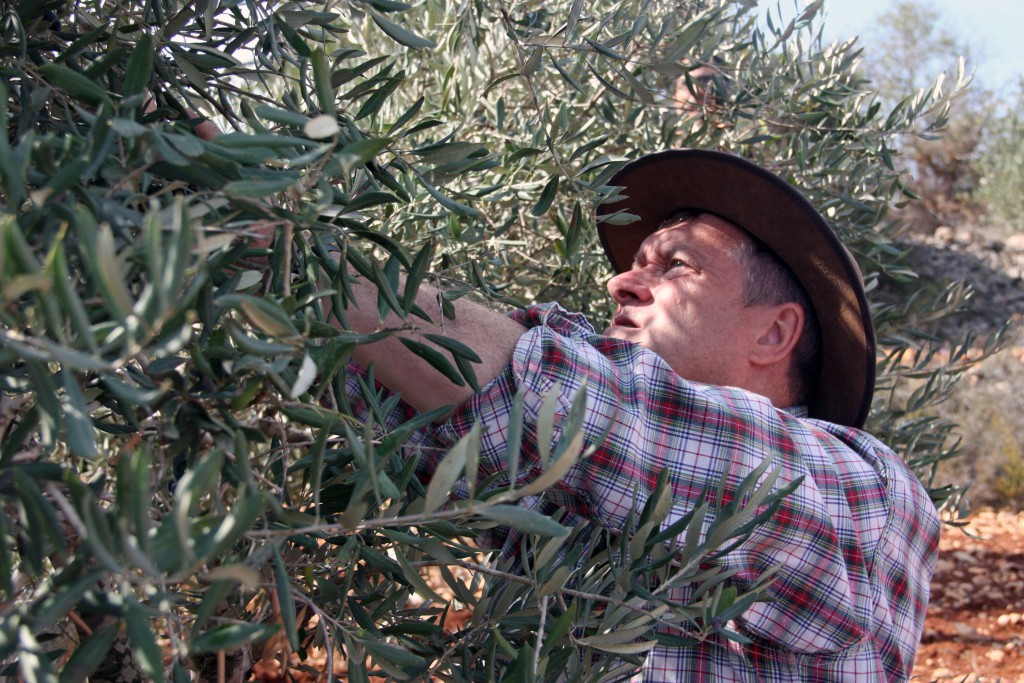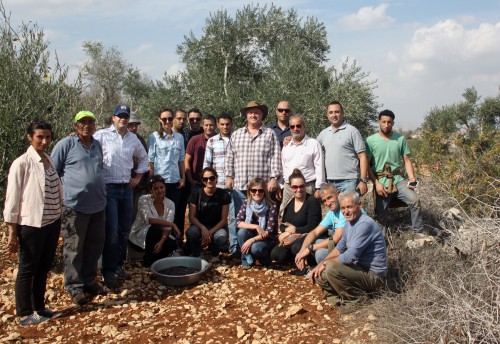23rd December 2014 Jerusalem, Israel
Olives are the bread and butter for Palestinians

There is no escaping olive trees in this part of the world. Olives appear on every table. Olive oil is liberally poured on every dish. The unmistakeable shape of olive trees lines every hillside. Even the Christmas ornaments I hung on my tree last week are fashioned out of olive wood. The olive tree is not simply a tree here. It is a source of life, a cultural treasure, and most importantly an identity.
A few weeks ago, I was reminded again of the significance of the olive tree. Minister Ziad Abu Ein died while planting olive saplings in a village near Ramallah. President Abbas planted an olive tree in his memory the following Sunday.
In October, I went with a team from the Consulate General to assist the Palestinian community of Sinjil with their annual olive harvest. The farmers in this village need a special permit to access their land, and it is usually given for few days. Their land is surrounded by settlements. We spent five hours there with the villagers climbing ladders and picking olives. We saw the olives being collected, cleaned and packed to continue their journey to the tables in the village.

Witnessing all this, it was very easy to sense the importance of this season for Palestinians. Olives are the bread and butter of the Palestinian economy. Nearly half of all cultivated land in the OPTs is planted with over eight million olive trees. The olive oil industry makes up 25% of agricultural income. 100,000 Palestinian families depend on the annual olive harvest for their livelihoods.
But the Palestinian olive tradition is under threat. The issues faced by the village we visited are replicated across the West Bank. The Separation Barrier and settlement security fences cut off communities from their land. 30% of Palestinian olive trees are behind Israeli security fences. Depending on the year, this can cost Palestinian farmers between $30m and $45m in lost income.
The restrictive permit regime near the Barrier and settlements also has an impact on yields and productivity. Only 50% of Palestinian permit applications for access to their land are approved during the olive harvest. This year the regime was even stricter. In 2014, Palestinians were granted 40% fewer days to tend and harvest their olives than during 2013.

And the spread of settlements is affecting the olive harvest. The village we visited is surrounded by five illegal Israeli settlements. Settlers regularly harass them and attack their trees. Settler violence against Palestinian farmers is unacceptable and must stop.
The Palestinian economy needs a productive olive industry. Palestinian families need to be able to continue their ancient traditions. Palestinian olive trees should be a symbol of peace, not strife. The UK calls for free and safe access to their land for all Palestinian farmers, so we can protect the olive harvest for future generations.